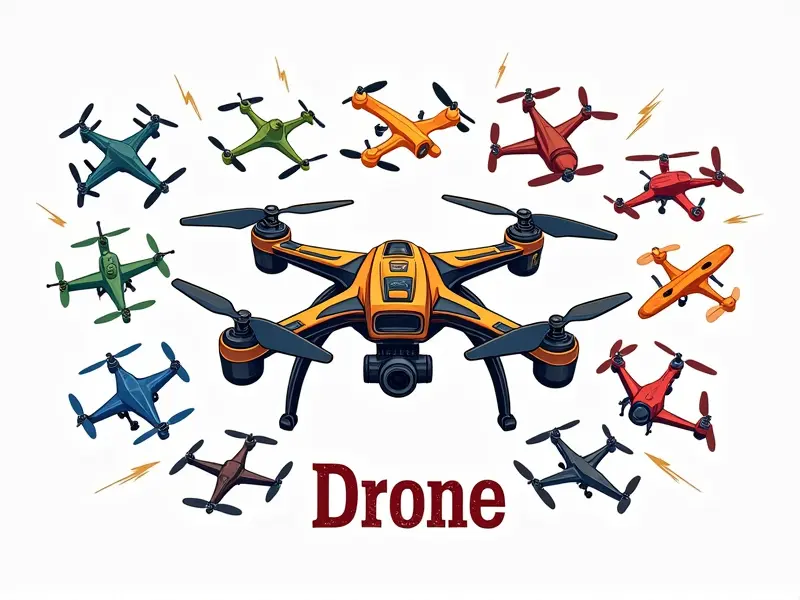FPV drone laws in US?

FPV Drone Laws in the US: A Comprehensive Guide
First-person view (FPV) drone racing has gained immense popularity over recent years. However, with this surge in interest comes a need to understand the regulations and legalities surrounding FPV drones in the United States. This article aims to provide an exhaustive overview of FPV drone laws, including FAA guidelines, no-fly zones, penalties for violations, privacy concerns, and state-specific rules.
FAA Guidelines for FPV Pilots
The Federal Aviation Administration (FAA) sets the primary regulations governing the operation of drones in the United States. For FPV pilots, these guidelines are crucial to ensure compliance with federal aviation laws. The FAA requires that all drone operators follow specific rules:
- Registration: All drones weighing more than 0.55 pounds (257 grams) must be registered with the FAA.
- Airspace Authorization: Operators must obtain airspace authorization through the FAA's LAANC system for flights above 400 feet or near airports.
- No Fly Zones: Avoid flying in restricted areas, such as military installations and government buildings.
Legal Flying Zones for FPV Drones
Finding suitable locations to fly your FPV drone legally is essential. Public parks, open fields, and designated recreational areas are generally acceptable if they do not conflict with local ordinances or FAA regulations. It’s important to check the specific rules of each location before flying.
Best Practices for Legal Flying
- Check Local Regulations: Some cities have specific rules regarding drone usage, including noise restrictions and height limits.
- Avoid Crowded Areas: Stay clear of areas with high foot traffic to ensure safety and avoid privacy concerns.
No-Fly Zones for FPV Racers
The FAA has established several no-fly zones where drone operations are strictly prohibited. These include:
- Military Installations: Drones must not be flown within 5 miles of military bases.
- Airports and Airfields: Avoid flying near airports or airfields to prevent interference with aircraft operations.
- National Parks: Certain national parks have restrictions on drone usage due to environmental concerns and wildlife protection.
Penalties for Violating FPV Laws
Violations of FAA regulations can result in severe penalties. These include fines ranging from $1,000 to over $25,000 per violation, depending on the severity and intent behind the infraction.
Common Violation Scenarios
- Flying Without Registration: Operating an unregistered drone can lead to significant fines.
- Infringing No-Fly Zones: Entering restricted airspace without proper authorization is a serious offense.
State-by-State FPV Drone Rules USA
The FAA provides the overarching framework for drone operations, but individual states may have additional regulations. Some states have specific laws regarding privacy, noise control, and public safety:
- California: Enforces strict rules on commercial use of drones.
- New York: Implements restrictions to protect wildlife in certain areas.
Privacy Concerns with FPV Drones
The use of FPV drones raises significant privacy issues. Operators must be aware that capturing images or videos of individuals without their consent can lead to legal action. It’s crucial to respect personal boundaries and adhere to local privacy laws.
Key Privacy Considerations
- Informed Consent: Always seek permission before recording people in private spaces.
- Data Protection: Be mindful of how data is stored and shared from drone footage.
Licenses Needed for FPV Pilots
The FAA does not require a specific license for recreational FPV pilots. However, commercial operators must obtain a Remote Pilot Certificate through the Part 107 certification process:
- Part 107 Certification: This involves passing an exam and maintaining ongoing training requirements.
Flying FPV Drones Legally in USA
To ensure compliance with all relevant laws, follow these steps when flying your FPV drone:
- Register Your Drone: Ensure your drone is registered with the FAA.
- Avoid No-Fly Zones: Stay clear of restricted areas and adhere to local regulations.
What Are FPV Drone Regulations?
FPV drone regulations encompass various aspects, including airspace management, safety standards, and legal restrictions. Understanding these guidelines is essential for safe and compliant operation.
Legalities of FPV Racing Drones USA
FPV racing drones have unique challenges due to their high speeds and close proximity to other participants. Operators must adhere to specific rules set by governing bodies like the Drone Racing League:
- Safety Protocols: Implement strict safety measures during races.
- Compliance with FAA Rules: Ensure all racing activities comply with federal guidelines.
Understanding FPV Drone Laws Today
The landscape of FPV drone laws is continually evolving. As technology advances and regulations adapt, it’s crucial for pilots to stay informed about the latest updates from both federal and state authorities.
Key Takeaways
- Stay Informed: Regularly check FAA announcements and local news for changes in drone laws.
- Engage with Communities: Participate in forums and groups to learn from experienced FPV pilots.
Conclusion
Flying FPV drones legally requires a thorough understanding of FAA guidelines, state-specific rules, and privacy considerations. By adhering to these regulations, you can enjoy the thrill of FPV racing while ensuring safety and compliance with all relevant laws.

